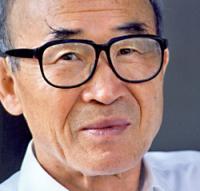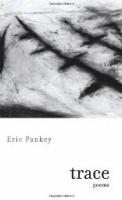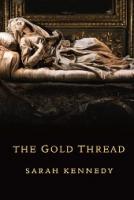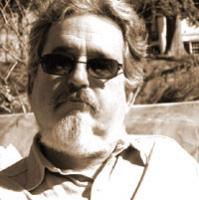January 8, 2013
Edited by David Sanders
Specimen Days
January 8, 2013
1824 – Francisco González Bocanegra, Mexican poet (d. 1861),i born.
1896 – Paul Verlaine, French poet (b. 1844), dies.
1927 – Charles Tomlinson, British poet and translator, is born.
1928 – Gaston Miron, Quebec poet and editor (d. 1996), is born.
1933 – Ko Un, Korean poet, is born.
1963 – Kay Sage, American artist and poet (b. 1898), dies.
1975 – Louis de Bourbon, Dutch writer/poet (Gypsy Blood), dies at 66.
1986 – Yaroslav Seifert, Czech poet (Nobel 1984), dies at 84.
 This special cell of a military prison
This special cell of a military prison
is like a photographer’s darkroom.
Without any sunlight I laughed like a fool.
One day it was a coffin holding a corpse.
One day it was altogether the sea. How wonderful!
A few people survive here.
Being alive is a sea
without a single sail in sight.
—from “Sunlight” by Ko Un (1933– )
Poetry In The News
Christian Wiman to Leave Poetry Magazine

Poetry magazine editor Christian Wiman will depart in June after ten years leading the magazine. He is leaving to teach at the Yale Institute of Sacred Music and Yale Divinity School. Read more at Media Bistro.
For Woman’s Poetry, an Unending List of Struggles to Draw From
The first time Natasha Charron performed at the Nuyorican Poets Cafe on the Lower East Side, she read a passage from her diary. It told of her experience with homelessness in New York City. Since then, Ms. Charron, 23, has attended at least two dozen slam poetry nights to recite original work about other struggles, including the circumstances that led to her leaving home in Warwick, R.I., more than four years ago. Read more at the New York Times.
Silver Lake Poetry Box Wins Fans, Stanza by Stanza
“I’m still getting reactions to the article,” said Peleg Top, the Silver Lake resident whose frontyard poetry box charmed readers when The Times profiled him in September. The business coach and life mentor had taken the kind of sidewalk box usually reserved for real estate flliers and filled it with poems, free for the taking, every week. Read more at the LA Times.
World Poetry
Brazilian Poet Ledo Ivo Dies in Spain
The widow of the late Poet Laureate Ted Hughes has revealed that she is planning to write her own memoir of marriage to the controversial figure. Carol Hughes, speaking exclusively to the Western Morning News, said she hoped to set down her memories of life with the poet in North Tawton, Devon, “while I have full recall, and no false memory”. Read more at This Is Cornwall.
Words of Love and Nostalgia: Portrait of a Libyan Poet
The revamped Libyan Center for Archives and Historical Studies in downtown Tripoli hosted a reading, “Echoes on the beaches of longing”, from one of the Libya’s elder poets this week. Veteran poet Abderraouf Abdelmajid Bin Al-Amin came to share some of his more recent work in Arabic, drawn from his repertoire of thousands of verses, all a product of his lifelong obsession with words and their origins. Read more at the Libya Herald.
New Books
It Becomes You: Poems by Dobby Gibson
[Paperback] Graywolf Press, 96 pp., $15.00
Meditative, lyrical, aphoristic, and always leavened with a wry wit, the poems in Dobby Gibson’s It Becomes You explore the divergent conditions by which we’re perpetually defined—the daily weather, the fluctuations of the Dow, the growth of a cancer cell, the politics of the day. What surrounds us becomes us, Gibson suggests, in a book that will ultimately become you.
Trace: Poems by Eric Pankey

[Paperback] Milkweed Editions, 96 pp., $16.00
His arresting ninth collection of poems, Eric Pankey’s Trace locates itself at a threshold between faith and doubt—between the visible and the invisible, the say-able and the ineffable, the physical and the metaphysical. Also a map of the poet’s journey into a deep depression, these poems confront one man’s struggle to overcome depression’s smothering weight and presence. And with remarkable clarity and complexity, Trace charts the poet’s attempt to be inspired, to breathe again, to give breath and life to words.
The Waiting Room Reader: Words to Keep You Company edited by Rachel Hadas
[Paperback] Cavankerry, 152 pp., $16.00
“The pieces gathered here touch upon themes poets have always visited: memory, family, love, loss, nature. Voices and styles naturally and delightfully vary; some pieces are chiseled and succinct, others loose and rhapsodic. But all, in addition to being accomplished, share the generosity and intensity of their attention to a particular piece of experience.” Among the contributors are Robin Behn, Maxine Kumin, Molly Peacock, Linda Pastan, Liz Rosenberg, Elizabeth Spires, and Jeffrey Harrison.
88 Sonnets by Clark Coolidge
[Paperback] Fence Books, 88 pp., $15.95
Clark Coolidge’s embrace of the sonnet form is a gemlike amalgam of narrative urge, wacky name-dropping, and pure visuality. Coolidge’s legendary proliferation—as many as ten sonnets in a single day—marries the stunning variety of his intellect on the mountaintop of formal inquiry.
The Gold Thread by Sarah Kennedy

[Paperback] Elixir Press, 80 pp., $17.00
“Sarah Kennedy’s The Gold Thread is an extended meditation on the quest for meaning—spiritual or otherwise—in a troubled world. Moving seamlessly from considerations of our spiritual foremothers, women who sought liberation and selfhood through the communion with God, to lamentations for the current state of things, these fierce, elegant poems serve as a kind of cautionary tale. They remind us of the possibility of another fall brought on by the myopia of empire, by war and the sins of injustice. Soberly and powerfully, Kennedy shows us that the golden thread is also what ties us to our past and, inevitably, to our future.”—Natasha Trethewey
Recent Reviews
Yannis Ritsos and the Poetry of Witness
by David L. Ulin
It’s tempting to read the Greek poet Yannis Ritsos, who died in 1990 at the age of 81, as an embodiment (of sorts) of Percy Bysshe Shelley’s admonition that “[p]oets are the unacknowledged legislators of the world.” A lifelong communist, he was sent into internal exile in the late 1940s and later held under house arrest after a military dictatorship took over Greece in 1967. And yet, if much of Ritsos’ work is explicitly political, he can also be among the most personal of poets, tracing in spare and lyrical language the substance of his days. Read more at the LA Times.
Eliot at 40, Puzzling Over Poetry, Parrots and People

by David Sexton
Here we have proof positive that T. S. Eliot was surely the hardest working man of letters there has ever been. This 826-page volume collects Eliot’s letters, from just 1928 and 1929, years when he himself turned 40. Though there are often multiple letters from a single day, even so this huge book doesn’t contain his complete correspondence from the time, significant letters to his brother and mother having been burned by Eliot. Read more at the Standard.
A Busload of Poets: Michael Zapruder’s Pink Thunder
by David L. Ulin
In 2006, musician Michael Zapruder boarded the Wave Books Poetry Bus in North Carolina and spent a week riding through the South. Among the poets with whom he traveled were his brother, Matthew, an editor at Wave (a leading poetry publisher, based in Seattle), as well as D.A. Powell, Bob Hicok, Dorothea Lasky and Mary Ruefle. The idea behind the bus tour was to bring poetry to its readers by making it accessible in the most public way. Poetry, after all, remains on a fundamental level aural, a form in which meaning is as much a matter of sound, of music and rhythm, as it is of the content of the words. Read more at the LA Times.
Major Label Verse
by Alex Niven and Stephen Ross
For countless aspiring young poets, Faber and Faber is the holy grail of publishing. But there is another view, one that sees the poisoned chalice as a more appropriate metaphor. Releasing a book with Fabers means attaching oneself to a UK poetry establishment that has long been regarded as degraded if not wholly obsolete in global terms. Over the last half-century, even the best Faber poets—Plath, Hughes, Heaney—were united by a certain mood of elegiac belatedness, while the worst—Larkin, Cope, Motion—turned rumours of British decline into a light-verse farce. In the meantime, the progressive and the talented—Bunting, Hill, Raworth, Prynne—were content to maintain the poetic avant-garde elsewhere, on presses not burdened by the millstone of Eliotic orthodoxy. Read more at the Oxonian Review.
Correspondences
T. R. Hummer on TV Influences, Music, Poetry and So Much More

by Meg Pokrass
T. R. Hummer is the author of seven books of poetry, including, most recently, Useless Virtues (2001) and Walt Whitman in Hell (1996), both from Louisiana State University Press. “For Dancers Only: Suite for Jimmie Lunceford, 1902-1947” is from The Infinity Sessions, a work-in-progress. Hummer has edited The Kenyon Review and New England Review and is currently editor of The Georgia Review. He lives in Athens, Georgia. Thank you, Meg Pokrass for interviewing him! Read more at CarolineLeavittville.
Sharon Olds: “I want a poem to be useful”
by Kate Kellaway
Sharon Olds has the wrong surname. At 70, you can see the young woman in Olds – in the sweep of her long hair and her gentle voice. Even her seed pearl necklace seems right, as if about to grow into something else. Suppleness – and a sense of mutability – is in her writing, too. She is one of America’s best loved poets – her readings attract huge audiences – but she is still under-recognised in this country. In the US, she has won the San Francisco Poetry Centre award, the Lamont poetry prize and the National Book Critics Circle award. And she has won the T. S. Eliot prize over here and may be about to secure it for a second time with Stag’s Leap, the most remarkable collection of her career. Read more at the Guardian.
Dana Goodyear Wouldn’t Introduce Herself as a Poet

by Scott Martelle
Poet and journalist Dana Goodyear perches on a swivel chair in the second-floor writing studio behind her Venice home, the windows cranked open to a gentle ocean breeze. Low rooftops and tall palm trees stretch to the horizon, and Goodyear points to an anomaly just across the alley — a faded surfboard tossed up and forgotten atop a neighbor’s single-story house. Read more at the LA Times.
Broadsides
Study the Panther!

by John Banville
For Rainer Maria Rilke the year 1903 did not begin auspiciously. He and his wife, the sculptor Clara Westhoff, were living in Paris, where the poet had come in order to write a monograph on Auguste Rodin. The Rilkes were not exactly dazzled by the City of Light. In a letter to his friend the artist Otto Modersohn, dated New Year’s Eve 1902, the poet spoke of Paris as a “difficult, difficult, anxious city” whose beauty could not compensate “for what one must suffer from the cruelty and confusion of the streets and the monstrosity of the gardens, people and things.” Read more at the New York Review of Books.
Auden and Elvish
by Erin Overbey
In 1926, a young W. H. Auden attended a lecture at Oxford, where he heard J. R. R. Tolkien recite a passage from “ Beowulf” so beautifully that he decided, right then and there, that Anglo-Saxon was a worthwhile academic pursuit. Auden became a close friend of Tolkien’s and an ardent champion of his work, defending him in public and in print against a host of early skeptics; he was one of the first serious writers (along with C. S. Lewis) to ask whether Tolkien’s narratives of heroic quests and imaginary worlds could be considered something more than simply escapist reading. This weekend, as many head to movie theatres to see Peter Jackson’s adaptation of “The Hobbit,” it’s easy to forget that there was a time when Tolkien’s work was largely confined to the ranks of children’s literature and cult fiction, and that it was Auden and others like him who helped legitimize Tolkien for today’s mainstream reader. Read more at the New Yorker.
Drafts & Fragments
so much depends upon

Neruda Cats
Envoi: Editor’s Notes
Bad Writing

The movie Bad Writing is being streamed for free on Vimeo for the entire month of January. Bad Writing is a documentary made by a young writer who has doubts about his own talents and so sets out to interview masters(and others) about teaching and learning the art and craft of writing, often making them read from his own juvenilia. The movie is delightful and often enlightening, with wise words from Robert Wrigley, Nick Flynn, Margaret Atwood, D. A. Powell, Yusek Kumonyakaa and others. It’s worth a watch.
—David Sanders